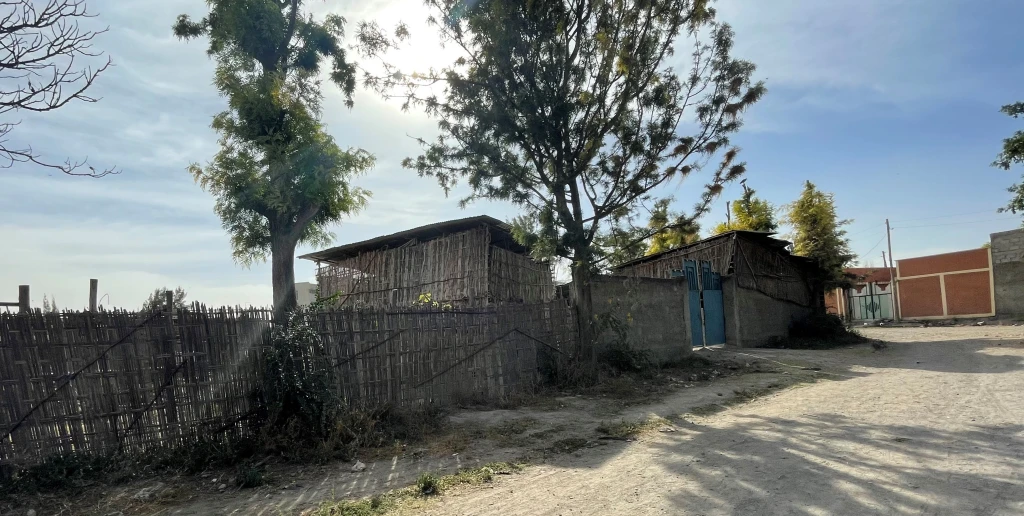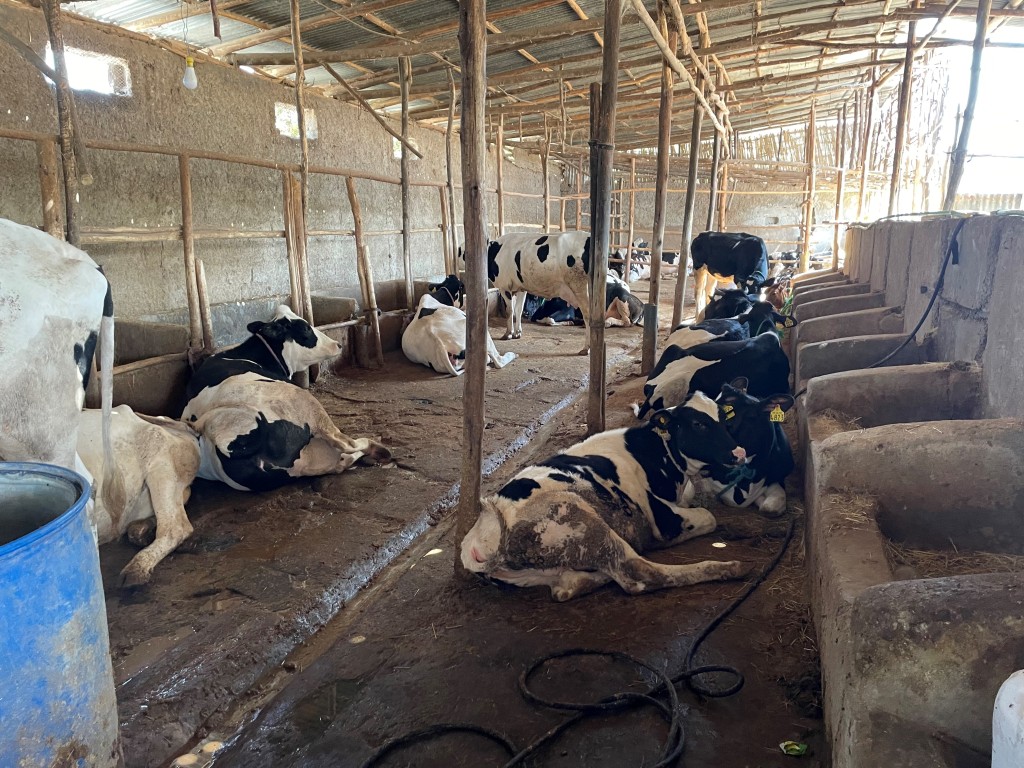Visiting Yaya Dairy Farm in Ziway, Ethiopia for the first time as part of my first Farmer-to-Farmer training with Catholic Relief Services was a very interesting experience. I have taken many weeks to prepare for this visit but was still feeling quite unprepared! I’ve been around dairy cows my entire life, studied dairy science at Penn State and have spent nearly 30 years working in the dairy industry. So, I should have felt fully prepared! However, I knew Yaya Dairy Farm would be

unique to any dairy I’ve worked with in the past! I knew I would encounter challenges I may find difficult to overcome but prayed that God would grant me the wisdom to help them improve their dairy management practices so that they and other dairy farmers here can improve their livelihoods and have a lasting impact in this community of about 50,000 people!

Immediately upon meeting Yared Abebe, the owner of the dairy and his farm manager Teshome, I could tell they were very open to new ideas. However, this farm was in fact so different than any others I’ve worked with in the past and certainly different than farms in the United States!
Yared started the farm 6 years ago on a small lot of land within the boundaries of the city of Ziway. He has an option to farm 5 hectacres (about 12.5 acres), but it’s not yet finalized. He has 18 Holstein cows currently milking 11 liters (about 25 pounds of milk) per day. two adult bulls, some younger bulls and raises all of his heifer calves. Yared also stared a cafe and small processing plant, buys milk from more than 20 other farmers, and provides milk and yogurt for 2,000 children in Ziway. He is also in the process of building a feed processing center to that he can lower is cost, have confidence in concentrate he is feeding and finally be a resource for other farmers in this community!

Throughout the day at the dairy, there are around 7-10 employees tending to the tasks of caring for this relatively large dairy farm. While they have grown some crops, right now, at the end of the dry season, 100% of the feed is purchased. They sell a lot of milk right at their back gate where people line up to purchase fresh milk at 50 Ethiopian Birr per liter. Today this is equivariant to $.93 or $3.52 per gallon. His neighbors come here because they know and respect Yared and because he has milk available at a fair price, lower than what they would pay in the store. That is IF they have milk available in the store.
My first full day at the dairy was focused on learning from all of them. What works well? What do they perceive as their biggest challenges? How do they manage their records? How do they evaluate new ideas to consider? What is most important to them? As we met and at times, worked alongside of each other, I was assessing and taking notes about every aspect of the dairy… the feeding program, milking procedures and milk production, breeding program, employee management, fly control, etc.

My first and most important objective this day was to really understand more about them, their perceptions, values, beliefs and goals before I would even consider jumping into providing solutions. After all, I know other experts have been here, I know Yared is constantly seeking out new ideas, even traveling to Kenya recently to visit other progressive dairy farmers. If fact, at one point, I asked myself “With all of the challenges and restraints, how in the world was I going to accomplish anything good here?

The answer to that question didn’t come easily. I realized that I would be continuing to learn from them for the duration of my time here. Most importantly, I realized the answers were not just solutions me or any other expert would provide. Yared, Toshema and many of the workers have ideas that may make a difference.
The biggest confirmation I had was that the solutions would have to start from within the confines or our current situation. Feed options and financial resources are very limited. I also realized that, like on our dairy farms in the United States, solutions would have to be systemized with clear protocols that will lead to continued improvement long after I go back to Pennsylvania!
So, with faith in God, I embraced this opportunity to learn from them, share ideas, encourage everyone at the dairy to be a part of the solutions.
As the dust settled on this day, I realized the problems we are working on are far greater than just helping a dairy farmer improve milk production. Yes, it is about helping Yared improve profitability of his dairy. Beyond that, it is about improving the livelihoods of all his employees. It’s about passing on the knowledge learned here to the 20 other farms Yared buys milk from. Most importantly, it’s about ensuring more milk is available and affordable to thousands in this community and millions across the rest of Ethiopia and East Africa. The stakes are high, the work is challenging, but I have confidence that the solutions will come “One Cow at a Time!”







